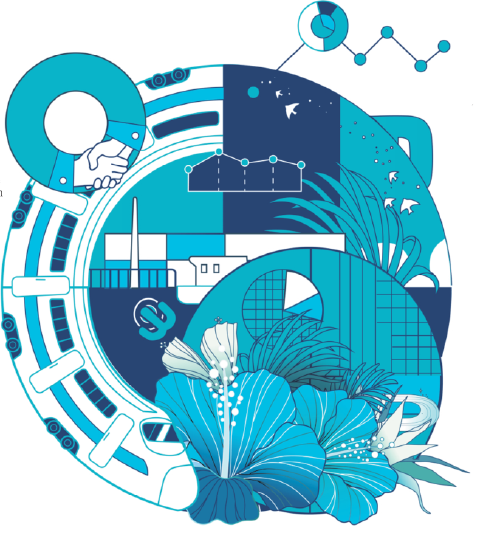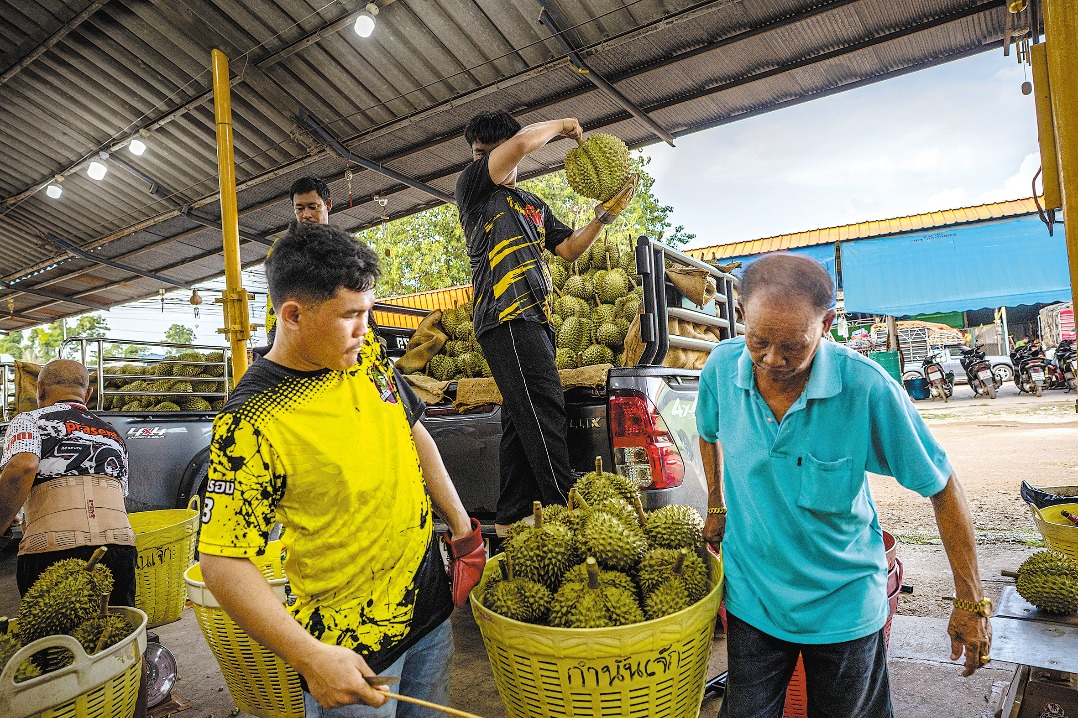Well-positioned to prosper


By keeping a clear focus on its foundational values, ASEAN can successfully maintain regional stability and its development momentum
In assuming the chairmanship of the Association of Southeast Asian Nations for 2025, Malaysia's Prime Minister Anwar Ibrahim has reaffirmed ASEAN's commitment to fostering a policy of open and inclusive engagement with all relevant stakeholders. Emphasizing the importance of dialogue and cooperation, Anwar has pledged to prioritize initiatives that strengthen regional unity, enhance economic collaboration, and address shared challenges such as climate change, security threats and socioeconomic disparities.
Indeed, one of ASEAN's key pillars is its dedication to fostering relations and cooperation with external partners, including China, the United States, Japan, the Republic of Korea, India, Australia and others. This open policy has brought numerous benefits to the ASEAN members, such as economic growth, enhanced mutual understanding on security issues, and significant contributions to the peace and stability of the region.
Over the decades, this platform has deepened and broadened to include new partners and initiatives. This year, Malaysia will host the inaugural summit in May between ASEAN, the Gulf Cooperation Council and China. This initiative will enhance ASEAN's role in shaping the inter-regional dialogue on trade, investment, energy and security cooperation.
According to Anwar, ASEAN must expand its global engagement beyond traditional partners to better navigate the current tensions in global trade. "Strengthening ties with China, the GCC, BRICS and other emerging economies is not about choosing sides," Anwar said. "Rather, it is about ensuring ASEAN has strategic relevance in a multipolar world."
Indeed, ASEAN has consistently engaged with all parties, including both China and the US, which have made a significant contribution to strengthening ASEAN and its centrality. And ASEAN would like to see continuation of these contributions.
It must be acknowledged that as a dialogue partner, China has played a constructive and pivotal role in advancing regional growth and stability. Today, China is ASEAN's leading trading partner and a major source of investment. Through initiatives such as the Belt and Road Initiative and the Regional Comprehensive Economic Partnership, ASEAN has further consolidated its economic interdependence with China, and enhanced its connectivity.
As an ardent supporter of ASEAN's core principles of neutrality and regional centrality, China has consistently demonstrated its commitment to maintaining peace and stability in the region. Beijing's active participation in multilateral frameworks and willingness to collaborate on shared challenges further underscore China's crucial role in fostering a stable and prosperous Southeast Asia.
The return of President Donald Trump to the White House has introduced new variables as well as uncertainties into the global geopolitical and economic order. Trump's "America First" foreign policy is prompting both allies and adversaries to reassess their geopolitical alignment and strategies. His imposition of tariffs on allies and adversaries alike is escalating the risk of a global trade war.
At the start of Trump's second term, the already tense rivalry between the US and China seems set to intensify further, affecting not only the two great powers but also other countries, including those in Southeast Asia. Heightened US-China rivalry could force the ASEAN nations into making difficult geopolitical choices, potentially fracturing regional unity. ASEAN has made it clear that it does not want to be caught in the crosshairs of the US-China rivalry.
ASEAN should continue to affirm its longstanding non-alignment policy, emphasizing neutrality in the increasingly fraught global geopolitical landscape. "We remain nonaligned and will not be drawn into greater power rivalries," Anwar said. "We reject economic coercion and unilateral actions that undermine regional stability."
Indeed, ASEAN has consistently made efforts to maintain its independence, focusing on regional stability and cooperation without taking sides in the great power rivalry, thereby safeguarding the interests and sovereignty of its member nations through economic resilience and diplomatic neutrality.
Despite the uncertainties, it is hoped that the Trump administration will continue to recognize the strategic importance of Southeast Asia and maintain its commitment to playing a constructive role in promoting regional peace and stability. Such engagement would reaffirm US commitment to a balanced global order and support ASEAN's efforts to address shared security and economic challenges in the region.
To that end, ASEAN also hopes that the US-China relationship will shift from rivalry to cooperation. A collaborative partnership between the two great powers is essential not only for their own well-being but for the future of the world. Humanity is faced with global crises such as climate change, potential future pandemics and the risks posed by artificial intelligence. Unless the US and China work together, the collective ability to effectively address these challenges will be severely compromised.
The 21st century is witnessing profound transformations in the global geopolitical and economic landscape. In this era of uncertainty and shifting power dynamics, ASEAN must steadfastly uphold its core principles of neutrality, inclusivity and proactive engagement with all stakeholders. By maintaining this commitment, ASEAN can not only safeguard its centrality in the region but also serve as a vital force for fostering peace, stability and sustainable growth, both within Southeast Asia and on the global stage.
The path ahead demands resilience, adaptability and unity, but with a clear focus on its foundational values, ASEAN, with the support of external partners such as China, is well-positioned to navigate these challenges and seize emerging opportunities.
The author is president of the Malaysia-China Friendship Association and former Malaysian ambassador to China. The author contributed this article to China Watch, a think tank powered by China Daily.
The views do not necessarily reflect those of China Daily.
Contact the editor at editor@chinawatch.cn.
































